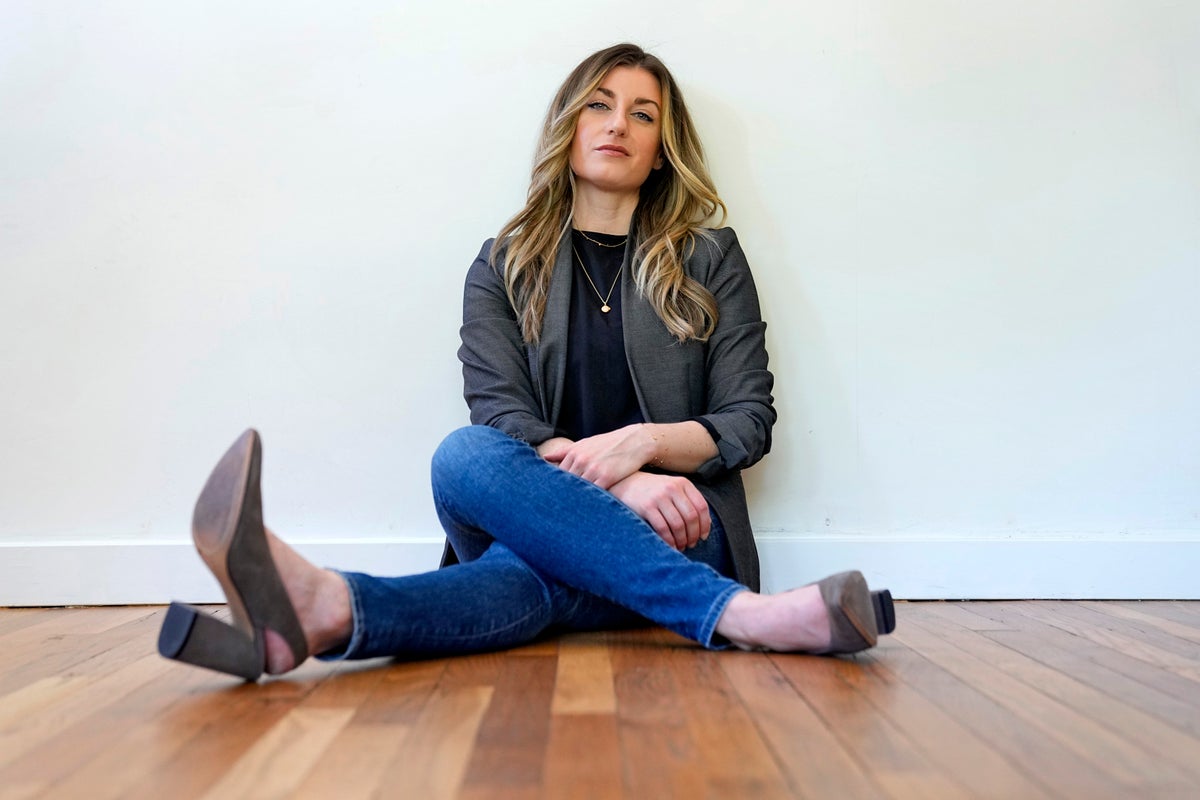
Time is a precious commodity and some readers need to be hooked from page one. T.J. Newman 's 2021 debut novel “Falling” (Avid Reader/Simon & Schuster) begins with a sentence that blasts out of a cannon: “When the shoe dropped in her lap the foot was still in it.”
The novel — about a pilot whose family will be killed if he doesn't crash the plane he's flying — had an equally fast trajectory to the bestseller list. With Newman's second book, "Drowning: The Rescue of Flight 1421," out Tuesday, she again starts with a bang: “Will Kent opened his eyes just to see the engine explode.”
In “Drowning,” a plane crashes into the ocean shortly after takeoff and its survivors, including a father and his young daughter, race against the clock to be rescued before the plane sinks. The events unfold from various points of view because, as Newman says, “every person is the lead character in their story, you put them in an enclosed environment on a plane, add a central conflict, and you've got a rich, fully fleshed-out (narrative)."
Newman says she's “obsessed with the reader experience” and feels satisfaction if readers devour her books in big gulps.
“I don’t want to just have a reader read a book, I want them to experience a story. When people say, ‘I stayed up till four in the morning reading, I couldn’t put it down and had to know what happened,’ nothing makes me happier."
Newman's books have also made her wealthy. Even before its release, “Drowning” sold for $1.5 million to Warner Bros. in a bidding war. Newman gets to work closely on the adaptations, too: She is writing the screenplay for “Falling” and will be an executive producer on “Drowning.”
In an interview that's been condensed for clarity and brevity, Newman discussed why women in the action-thriller space are rarities and how working as a flight attendant for 10 years informs her writing.
___
AP: You're one of a number of authors lately who gets to be involved in the Hollywood adaptation of your novels. Do you think that helps to keep the bones of the story intact?
NEWMAN: Definitely. I know this story backwards. That being said, it was also fascinating to get on these calls with directors and writers and actors and studio executives who know movies backwards. And to have them say to me, “Here’s an interesting way that we could tell your story.” It was eye-opening and humbling and inspiring to see all the different creative interpretations of a story that I had already told the best way that I knew how. Communication between the two is is crucial. The author is the natural go-between of those two worlds.
AP: Because not a lot of women find success, let alone opportunities in this space, do you feel you're in a unique place?
NEWMAN: These stories are the kind of stories that I want to tell, but they’re not the kind of stories that women usually get to write and that’s really exciting to me. You look at the books that I love and and the movies that I love, and you look at the screenwriters and they’re not women. There wasn’t a place for me in this world for a long time. As I was trying to get my first book out there, I faced a lot of rejection because of that.
AP: Your answer makes me wonder if you go by T.J. Newman, a unisex name, for that reason?
NEWMAN: It is not. My name is Torri Jan and I went by it because I wanted that little bit of space between public and personal. But, I hear all the time comments of, “He wrote a great book. I like his book” and “Oh, I didn’t know she was a girl.” It was an uphill battle to get where I am and I'm sure (gender) factored into it. I hope to show a way forward to the other women out there who want to write about massive, epic, explosion-filled, stories of danger and adventure and peril that women aren’t supposed to write about.
AP: I realize it's annoying to be asked about your next book after “Drowning,” but will you continue with this genre?
NEWMAN: I won’t write exclusively airplane thrillers. They’re not the only stories that I have to tell, but I’ve got a few more. You don’t work in aviation for 10 years and only come up with one or two good stories.
AP: For the nervous flyers out there, we look to the flight attendants for cues during turbulence, as they set the tone for the environment. Is that a good coping mechanism?
NEWMAN: I can tell you, we are aware of that. You can watch it as a flight attendant. The flight will be completely smooth and nobody’s looking at you and nobody is paying any attention to you. The second you hit some some genuine turbulence, all eyes are on you. You can feel it. You can feel everybody suddenly watching you, looking for that reassurance that “This is normal, right?” I love that moment, if I’m being honest, because it's the moment when everybody remembers what flight attendants are actually on the plane to do. We are safety and security professionals, first and foremost, full stop. And I think that gets lost a lot of the times because people think we’re just there for service.







